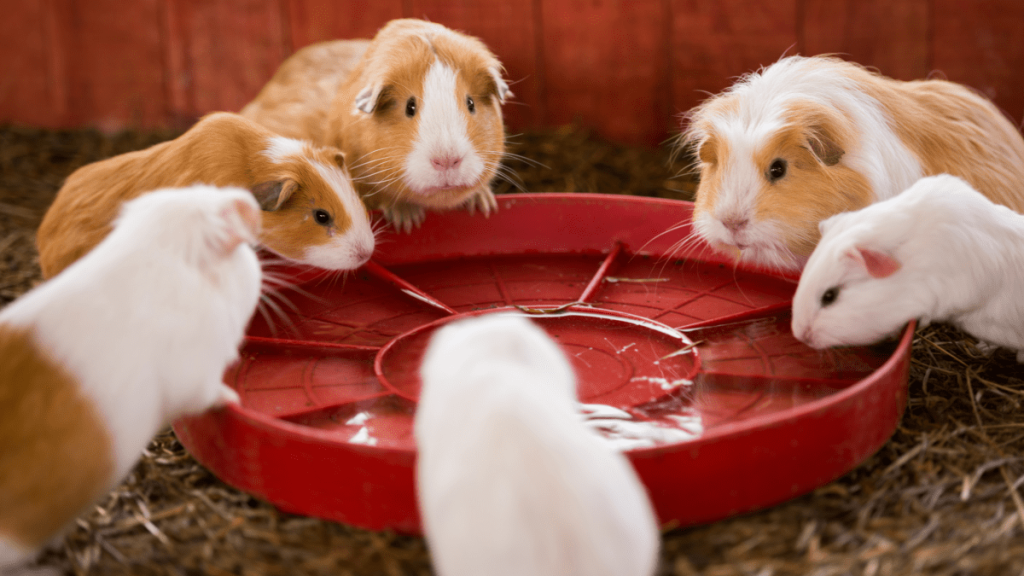Water is an essential nutrient for the health and well-being of guinea pigs. It is important to provide your guinea pig with fresh, clean water at all times to ensure they stay hydrated and healthy. In this article, we will provide you with a detailed description of the water requirements for guinea pigs.

Amount of Water
Guinea pigs require a constant supply of fresh, clean water to maintain good health. They should have access to water at all times, and their water bottle or dish should be refilled daily. A guinea pig should drink about 10% of their body weight in water each day, so it is important to provide them with enough water to meet their needs.
Water Bottle or Dish
A water bottle is the best way to provide water to your guinea pig because it is easy to keep clean and prevents drowning. The water bottle should be attached to the side of the cage, and the spout should be positioned at a height that is comfortable for your guinea pig to drink from. Alternatively, a water dish can be used, but it is important to ensure it is heavy and cannot be tipped over by your guinea pig.
Cleanliness
Cleanliness is essential to ensure your guinea pig’s water stays fresh and clean. The water bottle or dish should be cleaned daily to prevent the buildup of bacteria and algae. Use a mild soap and hot water to clean the water bottle or dish, and rinse it thoroughly before refilling it with fresh water.

Quality of Water
The quality of water is important for the health of your guinea pig. Tap water is generally safe for guinea pigs, but it may contain chemicals such as chlorine or fluoride that can be harmful to their health. If you are concerned about the quality of your tap water, you can use a water filter or bottled water instead.
Temperature of Water
Guinea pigs are sensitive to changes in temperature and prefer their water to be at room temperature. Avoid giving your guinea pig water that is too hot or too cold, as it can cause discomfort or shock. During hot weather, you can provide your guinea pig with cool water by adding a few ice cubes to their water bottle or dish.
Dehydration
Dehydration is a serious health concern for guinea pigs. Signs of dehydration include lethargy, loss of appetite, and a decrease in urine output. If you suspect your guinea pig is dehydrated, offer them water more frequently and consult with your veterinarian.
Water Additives
Water additives such as vitamins or flavorings are not necessary for the health of your guinea pig and can actually be harmful. Some additives may contain sugar or artificial sweeteners, which can cause dental problems or obesity. If you are concerned about your guinea pig’s vitamin intake, it is best to provide them with fresh vegetables and fruits that are high in vitamins.

In conclusion, water is an essential nutrient for the health and well-being of guinea pigs. Provide your guinea pig with fresh, clean water at all times, using a water bottle or dish that is easy to keep clean. Ensure the water is at room temperature and avoid adding any unnecessary additives. If you suspect your guinea pig is dehydrated, offer them water more frequently and consult with your veterinarian.


